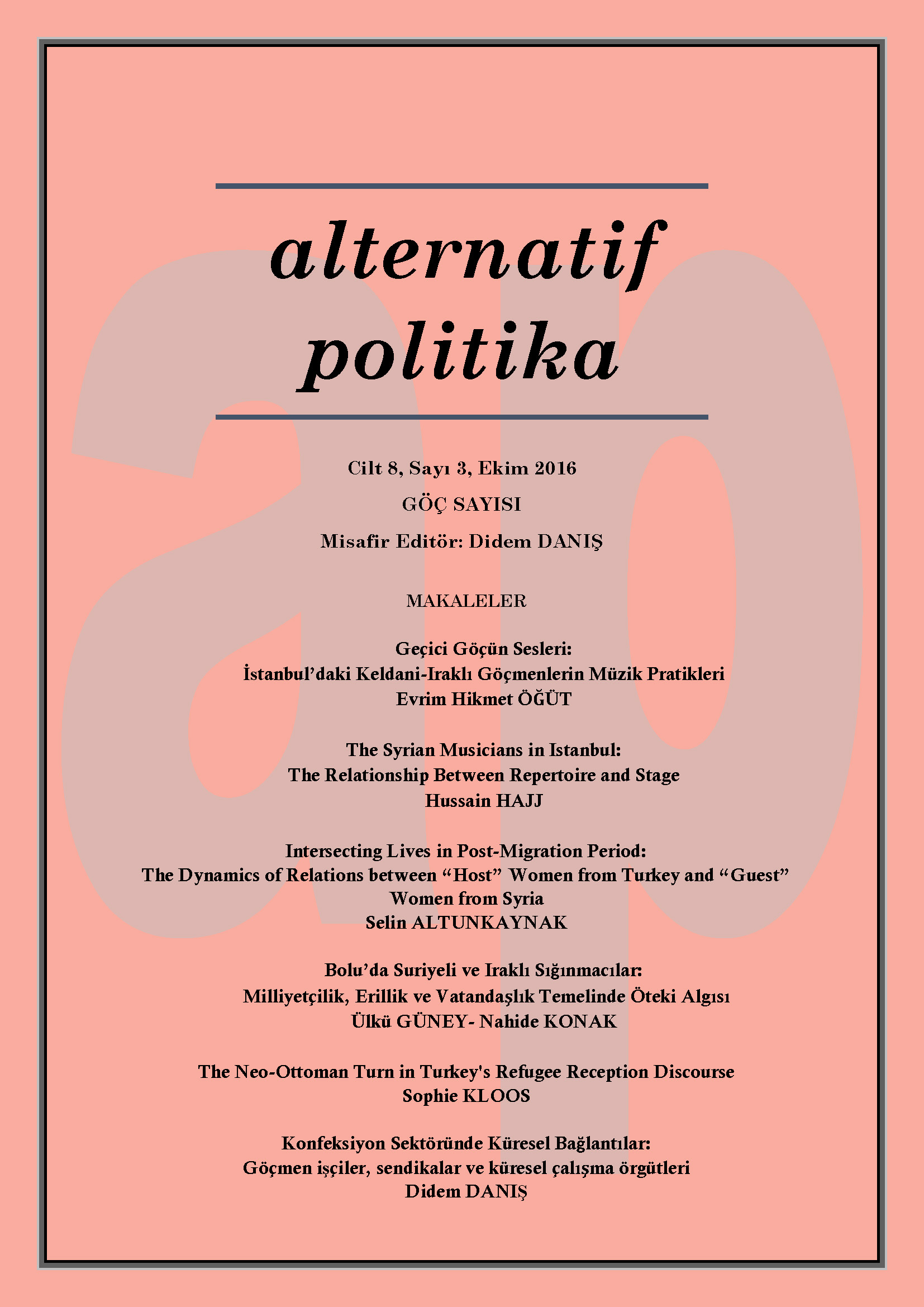Bolu’da Suriyeli ve Iraklı Sığınmacılar: Milliyetçilik, Erillik ve Vatandaşlık Temelinde Öteki Algısı
SYRIAN AND IRAQI REFUGEES IN BOLU: PERCEPTION OF THE OTHER BASED ON NATIONALISM, MASCULINITY AND CITIZENSHIP
Author(s): Ülkü Güney, Nahide KonakSubject(s): Politics / Political Sciences, Sociology, Politics and society, Nationalism Studies, Migration Studies, Sociology of Politics
Published by: Rasim Özgür DÖNMEZ
Keywords: Refugees; Other; Nationalism; Citizenship; Discrimination; Masculinity
Summary/Abstract: The main objective of this article is to discuss how the local people of Bolu perceive Iraqi and Syrian refugees resident in their city. In doing so it uses the notion of the “Other” as a conceptual framework. The data was retrieved from 44 in-depth interviews conducted in autumn-term of 2014-2015. The main result of our analysis shows that the interviewees construct the refugees as the ‘Other’ by reproducing the nationalist discourse of ‘defending the fatherland’. At the same time the Othering process is linked with the masculinity discourse that is much interrelated to nationalism. In other words, we found that the interviewees create dichotomies and establish hierarchies by generating meaning. In this hierarchy “us” as “loyal citizens” are situated on the top, whereas “them” as “traitor” are placed at the bottom. Similarly, in this hierarchy “we men” are idealised on the ground of masculinity and placed at the top, whereas “them” as “deserter” are othered and kept outside of the normative definition of masculinity that places them at the lowest level. In a way the refugees are stigmatised as traitor and constructed as the other by denying their nationalism as well as their masculinity. This nationalist-masculine approach can be seen as the justification of the rejection of conferring them Turkish citizenship. As a surprising evidence, we found that among the local people of Bolu, there is very few indication of othering on the ground of language. Particularly economic interests and in some cases humanistic approach, puts linguistic nationalism into a secondary position
Journal: Alternatif Politika
- Issue Year: 8/2016
- Issue No: 3
- Page Range: 505-535
- Page Count: 31
- Language: Turkish

